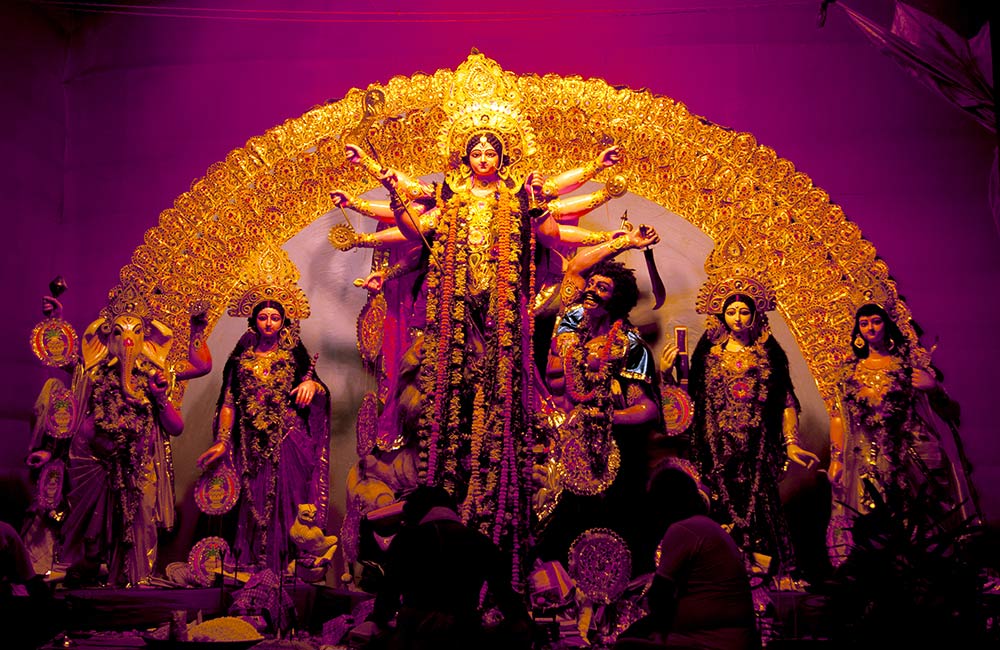RELIGION IN INDIA

India is a major multi-cultural country in the world. A very religious complex country, religion lives in people’s mind. Hinduism, Islam, Cristian, Buddhism, Judaism, Sikhism, Jainism, are main religions in India.
Indians value religious tolerance, though they also live religiously segregated lives.
Hinduism is an ancient religion.
Hinduism is polytheistic [worship of more than one god] in nature. It also believes in the existence of God in humans, animals, and natural forces. It believes that God exists in the soul of the individual, which ultimately merges into a universal cosmic force called 'Paramatma' meaning 'Universal Soul'
Islam is the second most followed religion in India, influencing country’s society, culture, architecture and artistry.
Christianity is also a monotheistic religion centered the life and teachings of Jesus. It is the third largest religion of India. Mostly concentrated in the far south and Mumbai. The most prominent denomination of Christianity in India is Roman Catholicism.
Buddhism is an Indian transtiastic religion and philosophy. It includes only practical way to success our lives. Buddhism originated as a countermovement to early Hinduism.
Judaism is also monotheistic and there is a very small number of Indians following it.
Sikhism is a monotheistic religion with the teaching of GURU NANAK and successful Sikh gurus. The religion is centered on a tenet of service, humility and equality, encouraging its followers to seek to help those less fortunate or in need.
Jainism is a nontheistic Indian religion with philosophical system.

DAILY LIFE AND RELIGION
ü Hinduism continues to thrive in modern-day India. The religion affects everyday life and social interactions among people especially on caste systems.
ü It is common to find images of gods and goddesses in public and private spaces at all times of the year.
ü The elephant-headed god, known as Ganesh, is particularly popular due to his believed ability to remove obstacles.
ü Natural landscapes are also venerated, such as particular trees or rivers.
ü The Hindu pantheon of deities extends into the hundreds of thousands due to the localized and regional incarnations of gods and goddesses.
ü There are also many festivals celebrated throughout the country dedicated to the many Hindu narratives and deities.

Be on the know!
ü In many Hindu temples, non-Hindus are not allowed to walk inside certain parts of the temple complex.
ü People often give offerings to temple deities such as lotus blossoms and coconuts, and you may receive a prasad—typically a small sweet or fruit—from a priest in return (remember to take it with your right hand).
ü Leather articles such as wallets, belts and bags are prohibited inside many Hindu temples.
ü Never point with your index finger, particularly at sacred items or paintings. Instead, motion with your chin or extend your hand, palm flat and skyward, at the object you’re referencing.
ü When visiting temples or entering an Indian home, remove footwear and hats. Dress conservatively in a way that expresses respect for the place of worship or household.
Comments
Post a Comment